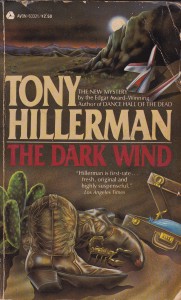Terrific essay by fellow blogger Lance Mannion at his self-named site. It’s called Shake Every Hand, Kiss Every Baby, and it’s a very readable analysis with much humor of the one-on-one people skills that successful politicians employ in connecting with voters.
His post reminded me of when Kyle and I met Bill Clinton in April ’92, prior to the NY primary, weeks before he had wrapped up the Democratic nomination. This was in lower Manhattan, near Wall Street. First Hillary, then Bill spoke standing on the open bed of a pickup truck, and when they were done, climbed down into the crowd. They met and conversed with everyone there, shook every hand, and campaigned like he was trailing in the polls, not leading. Bill’s hands were soft and big–it felt like shaking hands with a pillow. He looked me in the eye and asked for my vote in the upcoming primary. I then volunteered for his fall campaign against President Bush, joining an ad hoc group in Manhattan called Street Corner Speakers for Clinton. That was a great campaign year.
In considering what makes a successful politician, Lance’s references run the gamut from Dickens’ Hard Times to George McGovern’s early days as a hopeful South Dakota pol. I was glad to see that Andrew Sullivan linked to it this morning at The Dish on the Daily Beast in a share of Lance’s post Andrew called The Handshake Factor.
I recommend you read the whole piece. Here’s a taste of it, the same excerpt as on The Dish.
“You get out there and you shake as many hands, kiss as many babies, ring as many doorbells as there are minutes in the day every day. Ideally, before the campaign’s over you’ll have met every voter and asked them for their vote personally.
“Of course the higher up the ladder, the larger the constituency, and the more that ideal becomes an impossibility. So you’re forced to do a lot of it by proxy. Instead of meeting voters one at a time, you meet them in crowds. Instead of showing up on their doorsteps, you show up on their TVs and computer screens and mobile devices. You spend more time with big donors than with small business owners. And what used to be a matter of just doing your job, going out to listen to constituents tell you their troubles and ask for your help, becomes a photo op. If you worked your way up the political ladder, and you know what’s good for you, you remember what the point was and you keep in mind who deserves your attention when you’re out on the stump. And when you stop standing in front of the crowd and dive into it instead, all the old skills come back.”
* In borrowing this post’s title from Richard Ben Cramer’s great book of the same name, I say thanks to Mr. Cramer.
 #FridayReads, Sept. 7–The Dark Wind, one of Tony Hillerman’s early mysteries featuring Jim Chee, the Navaho policeman. I’ve loved these books for many years, and was happy to find this secondhand copy of the 1982 book from a sidewalk seller on Broadway last week. If you love mysteries and haven’t read Hillerman, what are you waiting for?
#FridayReads, Sept. 7–The Dark Wind, one of Tony Hillerman’s early mysteries featuring Jim Chee, the Navaho policeman. I’ve loved these books for many years, and was happy to find this secondhand copy of the 1982 book from a sidewalk seller on Broadway last week. If you love mysteries and haven’t read Hillerman, what are you waiting for?
